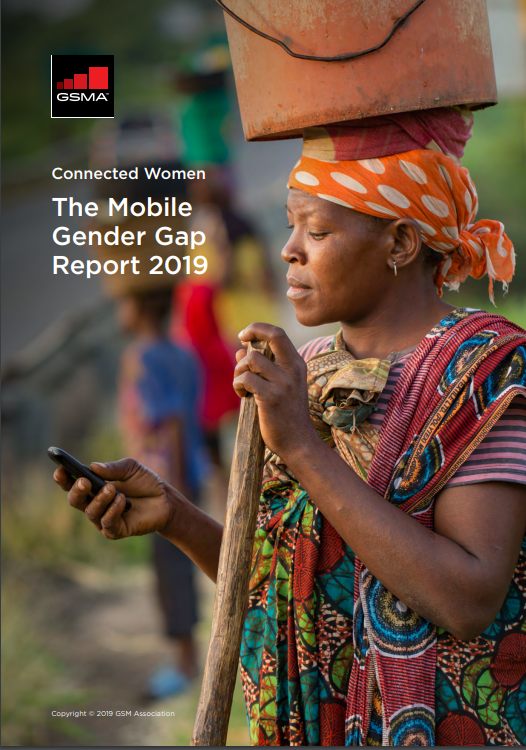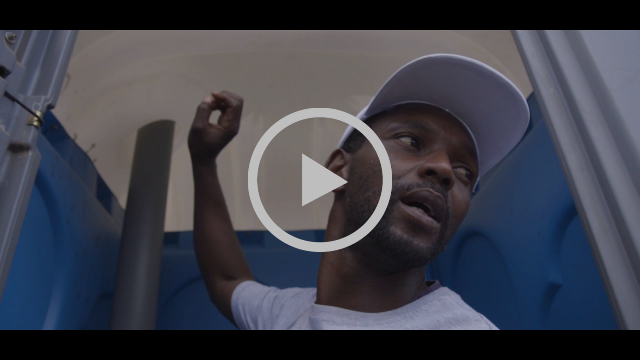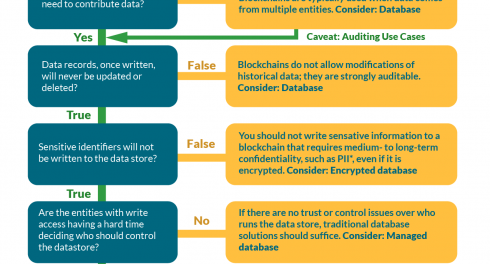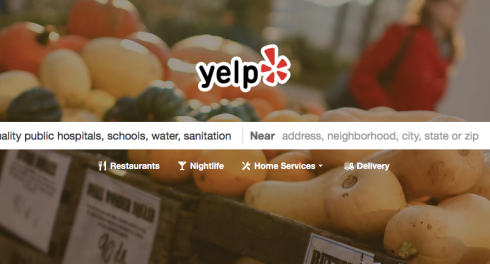Highlights:
- Demystifying debt
- Double jeopardy
- Avoid the clickbait
- Narrowing and harrowing
- Gender-lens evaluating
- TAI spotlight: From civic tech to civic empowerment to more funding for NGOs
In case you missed it…
Demystifying debt
 Photo: Pixabay
Photo: Pixabay
Debt burdens are on the rise for countries around the world with lending up from private, bilateral and multilateral sources. Much of the attention has focused on Chinese lending and Sophie van der Meer offers an overview the debates and motivations for those interested to get up to speed on the realities of so-called “debt-trap diplomacy.” Recently the United States clashed with China at the UN Security Council over Beijing’s Belt and Road initiative (BRI), saying the infrastructure investment scheme had “known problems” with corruption and debt distress and Japan will propose new G20 principles “on quality infrastructure investment” that spell out anti-corruption and fiscal sustainability as key principles for undertaking Asia and Africa infrastructure projects. It’s not clear what Beijing’s response to those will be, but in the meantime, more than 123 countries have signed agreements to cooperate with China under the program. You can now add Italy to that list (much to the concern of EU allies).
Much of the new finance is coming via a revival of development banks. Keen to understand how development finance institutions work? Devex is exploring their growing influence, where they are investing, and key challenges they face. Check out the series and their new tableau interactive. Rebecca Ray, Kevin Gallagher, and Cynthia Sanborn offer a review of the track record of Chinese DFIs in the Andean Amazon emphasizing the need for working together with all stakeholders early in the planning process.
Double jeopardy
There has been growing attention among TAI members on the potential for strategic litigation in support of good governance. That interest will only increase following a win for Tax Justice Network Africa. The Kenyan High Court has now declared the double tax avoidance agreement between Kenya and Mauritius “void and unconstitutional” due to failings in the ratification process as enshrined in the Kenyan Constitution. DTAAs have helped remove ambiguities for investors around risks of being hit for taxes into two jurisdictions, but are open to abuse, leading to revenue leakages for signatory countries. Although a procedural challenge that may not yet have investors quaking in their boots, it could lead to review of other bilateral tax treaties with low tax jurisdictions. Parliaments need to get up to speed on how to analyze the terms of such tax treaties before they get the chance to review a second time. Could a DTA policy framework lead to tighter and fairer agreements in the future?
Sticking with tax and investment, Didier Jacobs argues that citizens must demand transparency and accountability regarding tax incentives, and that it is past time to set a floor under corporate tax rates. (Part of our ongoing Fiscal Futures series with International Budget Partnership and Carnegie Endowment). Two academics from the University of York in Britain also make the case for improved tax transparency and making tax records publicly available. This time in support of ending fiscal austerity measures.
Did you know female-headed homes pay twice the amount of property tax as compared to male-headed households in Sierra Leone? To learn more revelations about gender and tax in Africa, check out interesting findings from The International Centre for Tax and Development (ICTD) featuring research from Tanzania, Uganda, Zimbabwe, and Sierra Leone.
On the money laundering front, it’s encouraging to see Canada propose a new anti-money laundering task force to crack down on real estate, casino, and trade-based money laundering, especially in high-risk areas such as Vancouver, Toronto, and Montreal. What about problems in natural resource investments? Brice Böhmer posits that corruption and illegal deforestation go hand in hand. How to tackle them? Through stronger community land rights and greater democracy.
OECD’s Global Integrity and Anti-Corruption Forum released a beneficial ownership toolkit to help government’s implement Global Forum standards on beneficial ownership. And on the domestic front, Global Financial Integrity released the findings from their “Library Card Project,” which looked at anonymous companies in the US and found that in every state, a person needs to provide more personal information to obtain a library card than to create a company. Indeed, not a single state requires companies to provide beneficial ownership information, and 23 states don’t even require a phone number or email address. Finally, watch this discussion on how the US and its allies can safeguard their institutions from transnational kleptocracy.
Last year, we saw lots of buzz regarding block chain technology applications for development. That has died down as application lags potential, but hopes are far from dead. Tabish Faraz argues that with the growing economic inequalities in South East Asia, block chain technology can help curb corruption and instil trust in government.
Avoid the clickbait
Sticking with the intersection of transparency and tech, controversies continue around companies selling your information around the world. Do website and app users really understand what they are agreeing to? Most likely not, suggests research for the UK Information Commissioner’s Office that flags the need for more transparency in relation to real-time bidding for online advertising. Facebook has announced changes to its ad rules, preventing advertisers from targeting users by age, gender and ZIP code for housing, employment and credit offers.
Could establishing ethical standards be a solution to personal data protection? A new generation of technical standards focused on Ethics of AI Systems are currently being developed by IEEE Standards Association. Without waiting on industry-wide approaches, Brian Whitman is developing more ethical web recommendations systems.
Elsewhere, a Center for Media Engagement study confirmed that when news sites explained the process behind a particular story, readers rated them as significantly more reliable. In an age of misinformation, might campaigning organizations benefit from a similar approach? TAI members are tracking how advocacy might evolve in an age of dis and misinformation.
Thinking of strengthening your data ecosystems? Paige Kirby at Development Gateway suggests starting with recognizing how civil registration and vital statistics data can be an “impartial arbiter” in the national data ecosystem, strengthening investments in government M&E systems, and understanding the difference between data dissemination and communication. Pair with Evidence in Governance & Politics’ (EGAP) new guide on what to know about missing data and Patrick Heller’s analysis of how open data yields more opportunity to enhance governance of state-owned firms in the extractives sector.
Are you aware of how your country’s state of digital development compares? Explore the Going Digital indicators and OECD policy insights for more information.
Long read
 Connected Women – The Mobile Gender Gap Report 2019 by GSMA
Connected Women – The Mobile Gender Gap Report 2019 by GSMA
An in-depth look at how mobile gender gap is changing in low- and middle-income countries, factors preventing equal mobile ownership and mobile internet use for men and women, and the importance of closing these gaps.
Narrowing and harrowing
CIVICUS MONITOR has added Afghanistan, Saudi Arabia, Serbia, Sudan, and Venezuela to its global watchlist of countries where civic freedoms are under serious threat. Montenegro, whose civic space rating is “Narrowed,” has proposed new revisions to the freedom of information law which would severely hinder the public’s efforts to detect corruption according to Transparency International. Meanwhile, we receive weekly reminders of the terrible risks run by those exposing wrongdoing. Santiago Barroso, a Mexican journalist who reported on organized crime and drug gangs was shot dead. Nasrin Sotoudeh, leading Iranian human rights lawyer and defender of civic space, has been sentenced to 38 years in prison for charges of propaganda against the state. The United Nations High Commissioner for Human Rights (OHCHR) has documented a series of civic space and human freedom violations in Ukraine ahead of this week’s election.
How can CSOs and activists overcome these threats and clampdown? Leta Hong Fincher details a case of how a networked approach keeps China’s women’s movement resilient. Authorities are increasingly cracking down on feminist organizing, but ‘ordinary women are speaking up because the focus has been on building community, not creating stars.’
Finally, it’s encouraging to see DFID (TAI Member) increase funding to CSOs in support of their work. (See more in the TAI Spotlight).
Gender-lens evaluating
Is there a way to introduce gender perspective in every evaluation? Sara Vaca shares her visual overview of different gender analytical methods and tools drawn from a UN Women Independent Evaluation Service guide and reflects on the gaps remaining for evaluative data collection and analysis (as opposed to contextual analysis).
It’s great to see growing attention to creating working environments in which all staff and beneficiaries are treated with respect and can thrive in the NGO sector – the latest example being this From Pledge to Action initiative by InterAction.
Did you ever think that using jargon could be a recipe for alienating your grantees and building silos? Sarika Bansal makes a case of why jargon-laden prose is particularly unacceptable in international development circles and how it results in the exclusion of the very people you are trying to help.
Thinking about and planning for responsible INGO exit and transition from a program or sector? Here are resources from Stopping As Success: planning for success from start to exit initiative. Want to get news, insight and personalized funding advice? Check out Devex’s funding platform.
Finally, turning to philanthropic motivations and practice (under close scrutiny of late), Philip Rojc observes that especially at the highest levels, corporate philanthropy is becoming increasingly strategic, more tightly weaving together the quest for social impact with the drive for profit. Even more concerning is recent research from NBER which suggests widespread corporate use of charitable giving is being used as a tool to influence federal rulemaking, swinging regulatory deliberations in companies’ favor.
Essential viewing

A documentary by Social Audit Network details the importance of partnership, collaboration, scale and other sector based social audits. Watch Now!
TAI spotlight
From civic tech to civic empowerment | Luminate
Stacy Donohue shares Luminate’s strategic shift from investing in civic tech to civic empowerment and lessons learned.
Lifting the lid on economic crimes | Luminate
Wendy Trott explains why they gave Open Secrets a grant of $185,000 to continue their investigations in holding power in all its forms to account.
Weaponizing citizenship | Open Society Foundation
Natasha Arnpriester outlines how weaponizing citizenship undermines the rule of law.
More funding for small and specialist NGOs | DFID
Penny Mordaunt pledges more funding for small charities and specialist humanitarian organizations during Bond conference.
Calls: Proposals, papers, speakers and course invites
On the calendar
- Annual Conference on Measurement Technology (V): Measuring Fragility – March 27, 2019 (Washington, D.C.)
- Filer Voter: Linking tax filing to voter registration – April 2, 2019 (Washington, DC)
- 3ie and IEG conference on citizen engagement and accountable government – April 8, 2019 (Washington, DC)
- World Bank Group and Internal Monetary Fund Spring Meetings – April 8-14, 2019 (Washington, DC)
- The CEP Conference – May 7-9, 2019 (Minneapolis, USA)
- Csv, conf, v4 – May 8-9, 2019 (Eliot Centre, Portland)
- 2019 Forum to Advance Women’s Leadership in the Global Development Sector – May 14, 2019 (Washington, DC)
- Collective Impact Forum Convening – May 14-16, 2019 (Chicago, USA)
- Policy Dialogue Day 2019 – May 22, 2019 (Gothenburg, Sweden)
- 2019 Open Government Partnership Global Summit – May 29-31, 2019 (Ottawa, Canada)
- Women Deliver 2019 Conference – June 3- 6, 2019 (Vancouver, Canada)
- RightsCon Tunis – June 11-14, 2019 (Tunis, Tunisia)
- InterAction Forum 2019 – June 11-13, 2019 (Washington, DC)
- Global Conference on Transparency Research – June 26 – 27, 2019 (Rio de Janeiro, Brazil)
- Tax Justice Network Conference 2019 – July 2 -3, 2019 (City, University of London, UK)
- Global Symposium (COPGS) on Citizenship, Governance, and Accountability in Health – October 15-18, 2019 (New Delhi, India)

